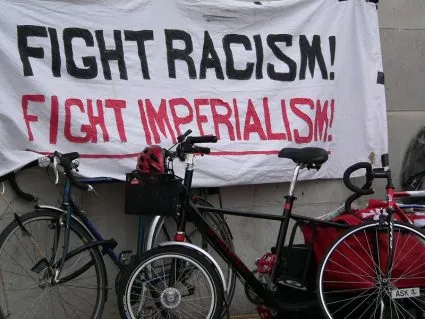
Table of Contents
Introduction
It was no coincidence that the three presidents who were called by the US Congress on December 5th, 2023 to testify about “antisemitism on college campuses” were the presidents of Ivy League schools (Harvard, MIT, and The University of Pennsylvania). It was also no coincidence that all three presidents were women, and that one of them (Harvard’s) happened also to be Black. And so, as usual, impeccably seizing the political moment, the US Republicans had smelled blood and understood that they had in their hands a perfect storm opportunity, and, characteristically, immediately jumped into action.
First was the matter at hand: antisemitism, a subject that often shuts down debate and discussion. The Democrats would have no wiggle room and no choice but to side with their Republican colleagues (as they did, and with relish), no matter how vituperative and unfair and even flatly false the Republicans’ attack against the witnesses might get.
But second, and most crucially for the Republicans, here was a chance to expose, in their mind, the hypocrisy of liberal elites: They have no problem shutting down speech, creating “safe zones,” letting dissenting colleagues hang out to dry (and not infrequently, gang up on them), and firing those who persist in their unorthodox ways (tenure in many cases offering almost no protection) when it comes to topics that touch on the rights of women, LGBTQ+ communities, racial minorities, etc. Yet there they were, mum and tolerating what they, the Republicans (and the vast majority of their Democratic colleagues), described as “antisemitism” and “calls for genocide of the Jewish people.” Where were the safe zones and the requisite firings, the Republicans asked? Why were these demonstrations allowed to happen day in and day out, while hosting a simple lecture by someone outspoken in a politically incorrect way was often barred as a matter of course? Aside from the bottomless cynicism and the fantasy that the speech that they were calling out (calling for a ceasefire in a war zone where civilians were being slaughtered by the tens of thousands, and chanting demands for the freedom of a people oppressed and subjugated for soon a century) was antisemitic, the Republicans did have a fair enough point to make by bringing the liberal chickens back home to roost.
For me, the revolting spectacle during those congressional hearings had this one redeeming aspect to it: It was a salutary lesson for all to learn that when you start to restrict civil rights (in this case freedom of speech—and on campus of all places), no matter how noble your cause and your intentions may be, a time will most certainly come when the circumstances will make it impossible for you to resist being pulled by the forces of an establishment power wishing to assert itself to shut down the speech of majorities expressing sharp dissent (80% among Democratic voters and 56% among Republican voters, support an immediate and unconditional ceasefire in Gaza).
I sent an invitation to submit a reaction to Prof. Finkelstein’s Op-ed (published by the Washington Post on December 10th, 2023), where she calls for limiting free speech when it comes to pro-Palestinian demonstrations, to exactly seventy academics and activists. Each one of them was someone with whom I had previously corresponded and who always responded to my emails. Out of the seventy, fifty eight did not reply, seven declined to participate, and five agreed to write something. Out of those five, one changed their mind and withdrew, two wrote something, but a few days later, withdrew their pieces (with one of them citing that they were not tenured and so could not risk it), so that I was left with exactly two contributions. From there, and with the help of the two remaining academics who were sticking to their guts, we managed to get ten contributions after several weeks of pushing and pulling. At the very last minute, as if all of this needed more drama—and crucially, after I had shared my introduction (what you are reading)—one academic checked with their department and informed me that they needed to withdraw their piece! And so here we are.
I will let all those facts speak for themselves, as well as the nine pieces below. The reactions are listed below, in alphabetical order by first name.
Dr. Ahmed Bouzid
Producer and Host
The Humanity 8.0 Podcast
Reactions
 Prof. Adam Rzepka
Prof. Adam Rzepka
Associate Professor, English
Montclair State University
Prof. Claire O. Finkelstein’s op-ed extends a tradition of arguments from prominent legal scholars against constitutional rights in order to manufacture consent for war crimes executed or proxied by the U.S. I am reminded most directly of John Yoo’s infamous “torture memos”—the immediate application here is less atrocious, but the stakes are ultimately just as high. Finkelstein’s argument is effectively against the right of students and faculty to rely on the First Amendment in order to oppose a genocidal military campaign whose unconditional funding, supply, and political support is the current policy of our federal government.
As has been pointed out in other responses in this collection, the supposed rash of calls for “genocide against Jews” on campuses is a rhetorical phantom: such warnings are never accompanied by any actual examples. The slanderous implication that objections to Israel’s campaign in Gaza are aligned with violent antisemitism serves only one real purpose: to give institutional and intellectual cover for public acquiescence to what is at best a string of war crimes, almost certainly ethnic cleansing, and probably genocide, with the U.S. as its only foreign patron.
Like all such ideological covers, this argument necessarily proposes an abrogation of constitutional rights and the rule of law. In Finkelstein’s case, the forced consensus that genocidal violence must be lock-step public policy is the deeper point of the phrase “with or without the First Amendment.” Even on public university campuses, whose free speech standards must adhere to that amendment, calls for an end to the U.S.-supplied killing of some 3000 children per month in the Gaza campaign must also pass the test of whether or not those objections create a “hostile work environment” for specific ethnicities or national origins.
That last point is the most insidious one for public universities, especially, because it perverts the justice of Title VI and similar statutes by weaponizing them against objections to a specific government policy. Contortions like Finkelstein’s are already forcing cracks in longstanding free speech protections at public universities, which until now were set aside as a counterexample in the furor over private speech policies at Penn, Harvard, and Columbia.
At my public university, my own persistent advocacy for a ceasefire on our faculty discussion listserv quickly drew an anonymous complaint that I was creating a hostile work environment. For three weeks, I was banned from all speech on that listserv, without knowing any details of the complaint. When some (though not all) of these details were finally shared with me, the “investigation” was immediately dropped.
More than 2200 children in Gaza had been bombed to death in those three weeks. Nothing I could have said to the campus at large could have saved them, but I would have liked to speak out against this slaughter to those at my university who were publicly defending it. The next day, the university, in an effort to head off the flood of new harassment claims, unsubscribed all users from the discussion forum, effectively shutting it down. It did the same to the all-campus listserv, the only remaining channel of communication available to the full campus. Because of the way tactics like Finkelstein’s have manufactured a conflict between free speech and respect, we can no longer speak to each other as a community, for any cause.
 Prof. Atalia Omer
Prof. Atalia Omer
Professor of Religion, Conflict, and Peace Studies
Kroc Institute for International Peace Studies/Sociology
Co-Director, Contending Modernities
Keough School of Global Affairs
The University of Notre Dame
If the conclusion drawn from the university presidents’ congressional hearing on antisemitism on December 5, 2023, is that academic freedom needs to be restricted, it reveals how dangerous it is for Jews to fall into the false equation of antisemitism and criticism of Zionism and Israeli policies of occupation, apartheid, and settler colonialism. Rather than combating antisemitism, Representative Elise Stefanik (a New York Republican)—who ignorantly equated legitimate recognition of Palestinian resistance (intifada) with an eliminative intent (genocide) in her interrogation of the presidents of Harvard, MIT, and the University of Pennsylvania—exposed the weaponization of antisemitism in the service of White supremacy. Ignoring her embeddedness in White supremacist discourse, Rep. Stefanik conveniently instrumentalized the fight against antisemitism to come across as riding a moral high horse (scolding the university presidents for supposedly supporting a far-fetched hypothetical scenario of calls for genocide against Jews, an accusation leveled at a time when, according to leading genocide and Holocaust scholars, actual genocidal actions are unfolding against Palestinians in Gaza). Rep. Stefanik’s prior parroting of the “great replacement theory” that deems “the Jews” as instrumental in facilitating the “replacement” of White Christian Americans with minorities is underpinned by actual forms of antisemitism, Islamophobia, and anti-Black racism. Indeed, regardless of the rhetorical efforts to separate antisemitism from other forms of racism, these bigotries are always interwoven.
We need to go no further than the chilling chants by White nationalists in Charlottesville in August 2017, “Jews will not replace us,” in a “Unite the Right” march protesting the overdue plan to remove a symbol of the Confederacy, which inflicts constant moral injury upon Black Americans. The dangers and fallacies of disentangling an analysis of racism from antisemitism likewise manifested in the mass shooting in Pittsburg’s Tree of Life synagogue on November 4, 2018. The shooter was primed to carry out his attack because he learned about the synagogue’s involvement with the Hebrew Immigrant Aid Society (HIAS) and their commitment to working with immigrants and refugees. In this way, his actions reflected the perverse influence of the “great replacement” theory. These examples illuminate the entanglement of anti-Black racism, xenophobia, Islamophobia, and reactionary White Christian nationalism with antisemitism. Hence, the congressional hearing gestures toward a moment of opportunity in a broader “culture war” against wokeness enabled by an entrenched Jewish and Christian Zionist infrastructure already in place. This infrastructure criminalizes and litigates Palestinian narratives through the equation and conflation of Jews with a nation-state (represented by an aggressive promotion of the International Holocaust Remembrance Alliance “working definition” of antisemitism). Thus, weaponizing antisemitism is convenient for such forces that have assaulted LGBTQI, migrants, Muslims, and other marginalized communities. Jews need to be alarmed by their persistent assimilation into Whiteness and their instrumentalization in policing academic freedom and debates on campuses.
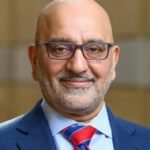 Prof. Ebrahim Moosa
Prof. Ebrahim Moosa
Mirza Family Professor of Islamic Thought & Muslim Societies
The University of Notre Dame
A new meme—a usage, a style, code phrases—that subliminally replicates in our minds an entire ideology, “genocide against Jews,” is taking root in American public discourse. Literally menacing, this meme did not surface when White militias were braying, “Jews will not replace us” at Charlottesville, VA in 2017 under Donald Trump’s rule. Trump endorsed that right-wing protest with his shameful claim that there were “good people on both sides” at that protest. Neither Israel nor its supporters in the US amplified that horrific meme as “genocide against Jews.”
As the defining moral moment of our time, the post-October 2023 groundswell of support for the Palestinian cause on US campuses and around the world, criticism of Israeli occupation and settler-colonialism gets maliciously perverted as “genocide against Jews.” Everything from academic conferences on Palestinian literature to protests by Jewish Americans are framed under this self-serving and diabolically designated meme. The goal is not to squelch critique of Israel but to outlaw it. Calls for limits to free speech advocated by people like Claire O. Finkelstein are part of a wider ideological project in support of an Israeli propaganda war.
This meme is a hoax and ruse to silence critical debate and should be called out for what it is: a bid to justify Israel’s atrocities and comfort its conscience over its serious human rights violations. Imagine White South Africans who favored apartheid racism complaining because criticism of racism made them feel uncomfortable? In fact, the parallel is inadequate: apartheid ruined the lives of millions, but no apartheid government murdered and targeted more than 20,000 defenseless people with 2,000-pound bombs. Defenders of Israel’s atrocities ought to feel uncomfortable for supporting horrific murders and the dispossession of Palestinians going back to 1948.
Advocates of speech restrictions are surreptitiously importing Israeli propaganda memes into our public and campus discourses. Such speech restrictions would not even be tolerated in Israel itself. But the chutzpah to upend US free speech codes beggars the mind. It is a covert attempt to curb the political tide against Israel’s privileged status in US politics and to whitewash that country’s settler-colonial atrocities against Palestinians with US taxpayer dollars.
 Prof. Fawzia Afzal-Khan
Prof. Fawzia Afzal-Khan
Professor of English and University Distinguished Scholar,
Montclair State University
Claire Finkelstein’s Op-Ed in the Washington Post deserves condemnation for several reasons, most obviously for its call to curtail First Amendment rights upon which much of the integrity and independence of thought and expression, which is the strength of US academia, rests.
More or certainly just as insidious, for me, is the way her convoluted and bad faith (il)logic, opens the way for a convergence of the worst excesses of right-wing politicians and their academic counterparts.
By equating chants of “intifada” or “from the river to the sea” with calls for the genocide of Jews—arguing that such speech thus incites violence “against a discrete ethnic or religious group,” and thus requires censorship of “free speech” tout court by college administrators—she is guilty of a disingenuous sleight of hand. By linking certain words and phrases to her interpretation of them, she is laying a trap of the exact same kind her congressional counterpart Elise Stefanik did, into which the presidents of UPenn, Harvard and MIT fell one after the other.
We should be clear, as these otherwise smart women were not: when Jewish Voices for Peace and Students for Justice in Palestine chant “From the River to the Sea, Palestine will be Free” they are not calling for genocide against Jews—many of them are Jews themselves! They are advocating for one secular and democratic state where all citizens can live together as equals. This is not possible in the current apartheid state of Israel, which has no right to think it speaks in the name of Jewish people of conscience: those who believe “never again” means never again for anyone!
If we in academia can’t debate and challenge illogical and pernicious views such as those of Ms. Stefanik and Prof. Finkelstein—to engage in the “dialogue” Finkelstein herself claims disingenuously to approve of—then the very foundations of critical thinking and vociferous, sometimes unpleasant debate we hold dear, never mind free speech, are doomed to extinction.
 Prof. Genevieve Lakier
Prof. Genevieve Lakier
Professor of Law and Herbert & Marjorie Fried Teaching Scholar
The University of Chicago Law School
What a difference a month makes. A month ago, the public conversation about freedom of speech on American campuses took place in the shadow of a frightful specter: the image of antisemitic mobs who, according to Republican politicians, pro-Israel groups, and Claire Finkelstein, were rampaging across American campuses, calling for the genocide of Jews, with the permission or at least without the active constraint of university officials. That specter continues to haunt the imagination of some—and may continue to influence American law and university policy for years to come.
In the last month however, the story of speech on campus has become considerably more muddled. In the wake of South Africa’s arguments at the International Court of Justice last week—arguments that focused on the very real possibility that Israel has violated its obligations under the Genocide Convention of 1948—it has become increasingly hard to ignore the possibility that, when Elise Stefanik grilled the university presidents on their policies regarding genocidal student speech at the now infamous House committee hearings, the answers the presidents gave about their treatment of pro-genocide speech were more relevant to the pro-Israel speech on campus than the speech of pro-Palestinian groups.
This is not to suggest that the voices of pro-Israel students and supporters should be muzzled in the name of protecting students against genocide-encouraging speech. It is to suggest instead that there is a reason the college presidents—and American free speech law— is generally skeptical of efforts to identify exceptions to the ordinary principles of free speech, particularly when it comes to incitement. The reason is, of course, that judgments about what counts as (to use Finkelstein’s language) “hateful rhetoric” and “poisonous speech” are inevitably political judgments that can and have and—in the current climate—almost certainly will, if empowered, be used to repress political dissent.
This does not mean that there are no limits to what students or faculty can say. But it does explain why these limits are, as the university presidents explained at those hearings, very limited, particularly when it comes to protest and other kinds of speech. Ultimately her op-ed, with its deeply distorted understanding of what in fact is and has been taking place on campuses across the country, helps remind us of why it is so difficult to craft exceptions to the general free speech principles that do not swallow us whole.
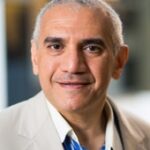 Prof. Mohammad Fadel
Prof. Mohammad Fadel
The University of Toronto Faculty of Law
Professor Claire Finkelstein recently argued that imposing restrictions on speech on US campuses is necessary to combat rising antisemitism. Her examples, however, cite only politically protected speech.
Such speech is at the heart of First Amendment’s protections. As the unanimous 2014 Supreme Court decision in McCullen v. Coakley held, even facially neutral “time, place and manner” restrictions on such speech can be struck down when they proscribe more speech than necessary. Private universities, while not obligated to follow the First Amendment, would surely be impoverished if they did not permit as wide a latitude for political speech as possible. The Supreme Court has only recently reaffirmed that political speech may only be proscribed when the speaker has a specific intent to foment imminent violence. Finkelstein provides no evidence that students at Penn or elsewhere, when they use these phrases, intend the genocide of Jews. Some Jewish students might subjectively experience such words as threats, but that does not provide a basis in our law to restrict the speech of others. Professor Finkelstein implicitly admits that the speech she describes as genocidal is equivocal, describing it as speech that “arguably incites violence.” Precisely because it is equivocal, controversial political speech invokes other crucial functions of the university that Finkelstein endorses: “civil dialogue across differences, . . . cultivating critical listening skills, . . . [and] promoting the ability to engage in moral reflection and building resilience in the face of challenge.” Students advocating for Palestine are engaged in a serious political critique of Zionism based on its devastating impact on non-Jewish Palestinians. Jewish students at Penn or other universities may experience this critique as painful or even hateful, but they are not entitled to immunity from hearing political critique of Jewish nationalism. Resilience, too, is a value the university promotes.
 Prof. Nermeen Arastu
Prof. Nermeen Arastu
Associate Professor of Law
Co-Director, Immigrant and Non-Citizen Rights Clinic
The City University of New York (CUNY) School of Law
Professor Finklenstein argues that University administrators should surpass existing systems of collective governance, accountability, and analysis (she brusquely writes off task forces and study groups) to make unilateral top-down decisions about what constitutes hate speech, a category with no fixed legal definition. The focus of her essay, political speech in support of Palestinian liberation and critical of the Israeli government, deligitimizes speech in defense of one persecuted minority currently facing unprecedented death and destruction in favor of another historically persecuted group.
Glaringly absent from her analysis are the harms that Palestinian students, faculty, staff and their allies face where their legitimate speech critical of an occupying government are dangerously categorized as an incitement of violence, or genocide. In the last months and beyond, these communities have already faced harassment, surveillance, and physical violence. They too, deserve an academic environment where they can access equal educational opportunities, engage in collective action and grief, debate the effectiveness of international human rights systems, and build community relationships.
For Finkelstein, these populations, equally in need of protection and safety, are invisible at best. At worst, Finkelstein falls under the trap of employing tropes commonly used against minority religious and racial communities from the earliest days of the formation of the nation: calling them uncivil, hate-filled, and implying their inability to engage in reasoned dialogue. This language dangerously sets the tone for the surveillance, criminalization, and over-policing of minority students that follows them and their families off campuses and into communities long into their adult lives.
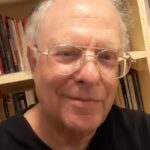 Prof. Richard Oxenberg
Prof. Richard Oxenberg
Professor of Philosophy
Endicott College
It is not possible to fully distinguish between speech and action. We live in communities largely characterized by meanings embedded in language. Speech shapes the character of these communities and, therefore, can profoundly affect the emotional and social wellbeing of those who live in them. In this respect, speech is action. Hate speech is a form of emotional and social violence even if it never results in physical assault. I believe, therefore, that College administrators have a responsibility to prohibit hate speech on their campuses. The problem comes in trying to distinguish between true hate speech and legitimate political expression. Take, for example, the word “intifada.” Intifada might be translated “resistance,” or “liberation.” A call for “intifada” against the state of Israel is legitimate political expression. A call for “intifada” against “the Jews” crosses the border into hate speech, as it is suggestive of the antisemitic charge that “the Jews,” en masse, are an oppressive presence in the world. How and where to draw the line between legitimate political expression and true hate speech is a difficult question. Nevertheless, I do believe a line must be drawn. Calling for the genocide of Jews, or the lynching of blacks, or the persecution of any ethnic or religious group is speech that should not be tolerated in communities dedicated to the advancement of truth and knowledge. How and where to draw the line between legitimate political expression and true hate speech is a difficult question that would need to be carefully considered on a case-by-case basis.
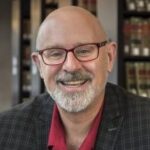 Prof. Tom Ginsburg
Prof. Tom Ginsburg
Leo Spitz Distinguished Service Professor of International Law and Director of The Forum for Free Inquiry and Expression
The University of Chicago
Professor Finkelstein is the latest in a long line of academics, from both the left and right, calling for the repression of campus speech they don’t like. Her position is the logical outgrowth of our era, in which students’ feelings take priority, and the use of terms like “violence” and “safety” have lost any connection with their traditional uses. Violence is what is happening in Gaza, while American universities are among the safest places on the planet. Our universities, with their ever-large bureaucracies, have encouraged rhetorical drift, but in doing so, have undermined one of their core missions—to prepare students as citizens of a plural, democratic society in which they will encounter opinions with which they strongly disagree. In the United States, with the First Amendment, this means that even private universities need to prepare students for a world in which all kinds of horrific speech is allowed, and so should generally take the same approach as public universities. This doesn’t mean that universities have to allow everything: perhaps a true call for genocide of Jews ought to be disallowed, though we have not to my ears yet heard one on an American campus in the wake of Hamas’ October 7, 2023 attacks. Israeli policy is an obvious area of democratic concern, and so must be fully debated, even if some find the slogans of one or the other side offensive. Of course, protests and speech must be carried out peacefully, without physically intimidating others, shutting down speakers, or interfering with classrooms. But Finklestein’s call for content-based restrictions is doubling down on a policy that is failing students and undermining public trust in higher education.

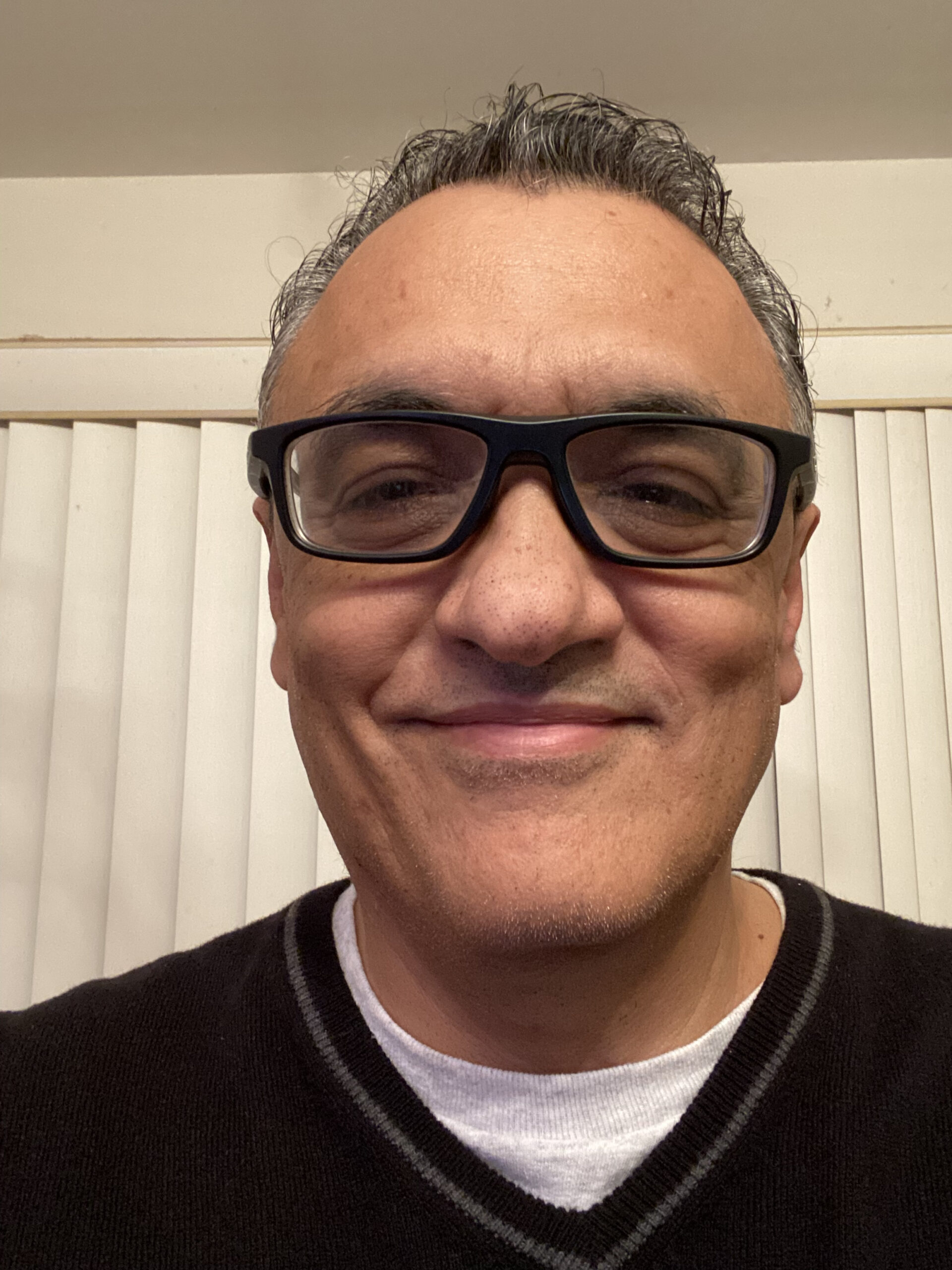
Hello,
There’s a mistake in the text in regards to the date:
“In the wake of Israel’s ongoing military campaign in Gaza following Hamas’ October 7, 2024 attack…” I believe it’s 2023, not 2024.
Thank you for bringing this to our attention. The post has been corrected.
Thank you for this wonderful piece. I would add that it’s not even students’ feelings taking priority, it’s donors.